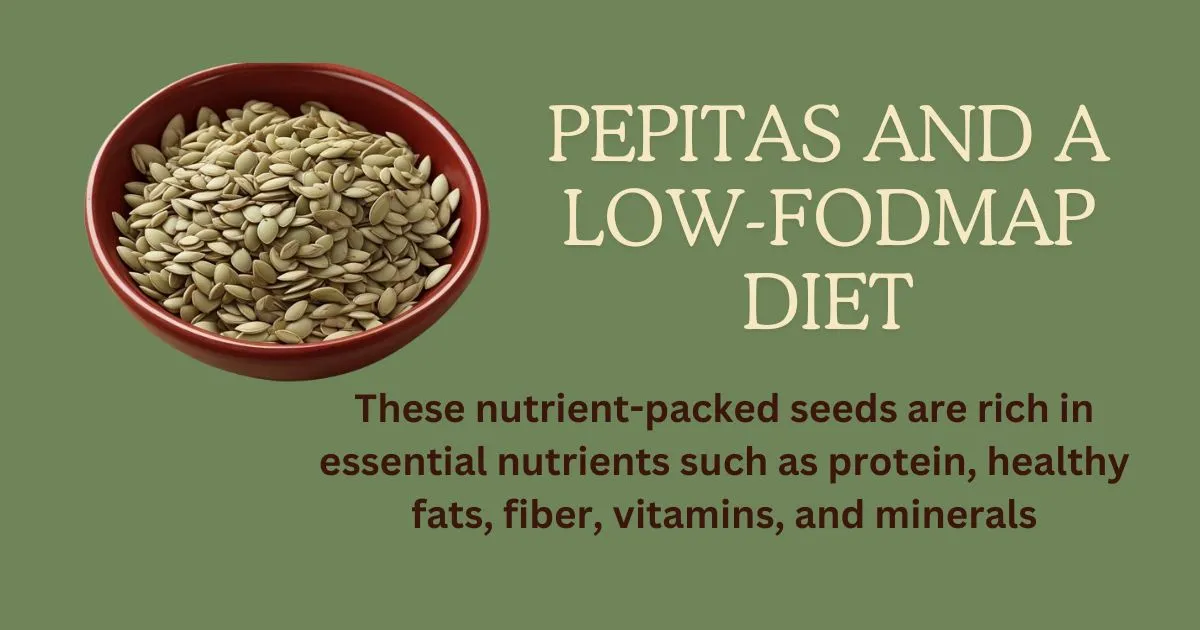Pepitas Low-FODMAP: Adding Flavor and Nutrition to Your Diet
In today’s health-conscious world, more and more people are becoming aware of the importance of a balanced diet, especially those with specific dietary restrictions or sensitivities. One such diet gaining popularity is the low-FODMAP diet, which aims to alleviate symptoms associated with irritable bowel syndrome (IBS) and other gastrointestinal disorders. In this article, we’ll explore the compatibility of pepitas with a low-FODMAP diet and how you can incorporate them into your meals for added flavor and nutrition.
Understanding the Low FODMAP Diet
Before delving into the specifics of pepitas, let’s first understand what a low-FODMAP diet entails. FODMAPs, which stands for fermentables oligosaccharides, disaccharides, monosaccharides, and polyols, are a group of short-chain carbohydrates that are poorly absorbed in the small intestine. For individuals with IBS or other digestive issues, consuming high-FODMAP foods can trigger symptoms such as bloating, gas, and abdominal pain. The low-FODMAP diet involves restricting foods high in these fermentables carbohydrates to reduce gastrointestinal discomfort.
Pepitas and a Low-FODMAP Diet
Now, the burning question: Are pepitas low in FODMAP? The good news is that pepitas, which are simply pumpkin seeds without the shell, are low in FODMAPs, making them a suitable choice for those following a low-FODMAP diet. These nutrient-packed seeds are rich in essential nutrients such as protein, healthy fats, fiber, vitamins, and minerals, making them a valuable addition to any diet.

Important Nutrition of Pepitas (Pumpkin Seed)
Incorporating Pepitas into a Low-FODMAP Diet
Adding pepitas to your low-FODMAP meals is not only easy but also delicious. Here are some creative ways to incorporate pepitas into your diet:
- Snack on roasted pepitas: Roast pepitas with a sprinkle of salt or your favorite seasoning for a crunchy and satisfying snack.
- Top salads and soups: Sprinkle pepitas over salads or soups for an added crunch and nutty flavor.
- Blend into smoothies: Add a handful of pepitas to your favorite smoothie for an extra boost of protein and nutrients.
- Use as a crust for proteins: Crushed pepitas can be used as a crunchy coating for chicken or fish, adding both texture and flavor to your dishes.
Potential Benefits of Pepitas for Digestive Health
Aside from being low in FODMAPs, pepitas offer several potential benefits for digestive health. These seeds are a good source of dietary fiber, which can promote regular bowel movements and support overall gut health. Additionally, pepitas contain antioxidants and anti-inflammatory compounds that may help reduce inflammation in the digestive tract and alleviate symptoms associated with digestive disorders.
Here are some important bullet points related to the potential benefits of pepitas (pumpkin seeds) on digestive health:
Tips for Buying and Storing Pepitas
When purchasing pepitas, opt for raw or unsalted varieties to avoid any added ingredients that may contain high FODMAPs. Store pepitas in an airtight container in a cool, dry place to maintain their freshness and prevent rancidity. If you prefer roasted pepitas, you can roast them yourself at home to control the seasoning and ensure they remain low FODMAP.
Conclusion of Pepitas low FODMAP
In conclusion, pepitas are a nutritious and low-FODMAP food. That can be easily incorporated into a variety of dishes to add flavor, texture, and nutritional value. Whether you’re following a low-FODMAP diet or simply looking for a healthy snack option, pepitas are a versatile ingredient worth adding to your pantry.
FAQs of Pepitas low FODMAP
Are pepitas suitable for individuals with IBS?
Yes, pepitas are low in FODMAPs and can be included in a low-FODMAP diet for individuals with IBS.
Which seeds are best for IBS?
Similar to nuts, seeds are best sources of amino acid(protein), fiber, and omega-3 fatty acids, which can help alleviate symptoms of IBS. Chia, flax, pumpkin, and sunflower seeds are particularly beneficial choices for individuals with IBS. Incorporate these seeds into your food by adding them to smoothies, oatmeal, salads, rice bowls, or homemade trail mix for added nutritional value and flavor enhancement.